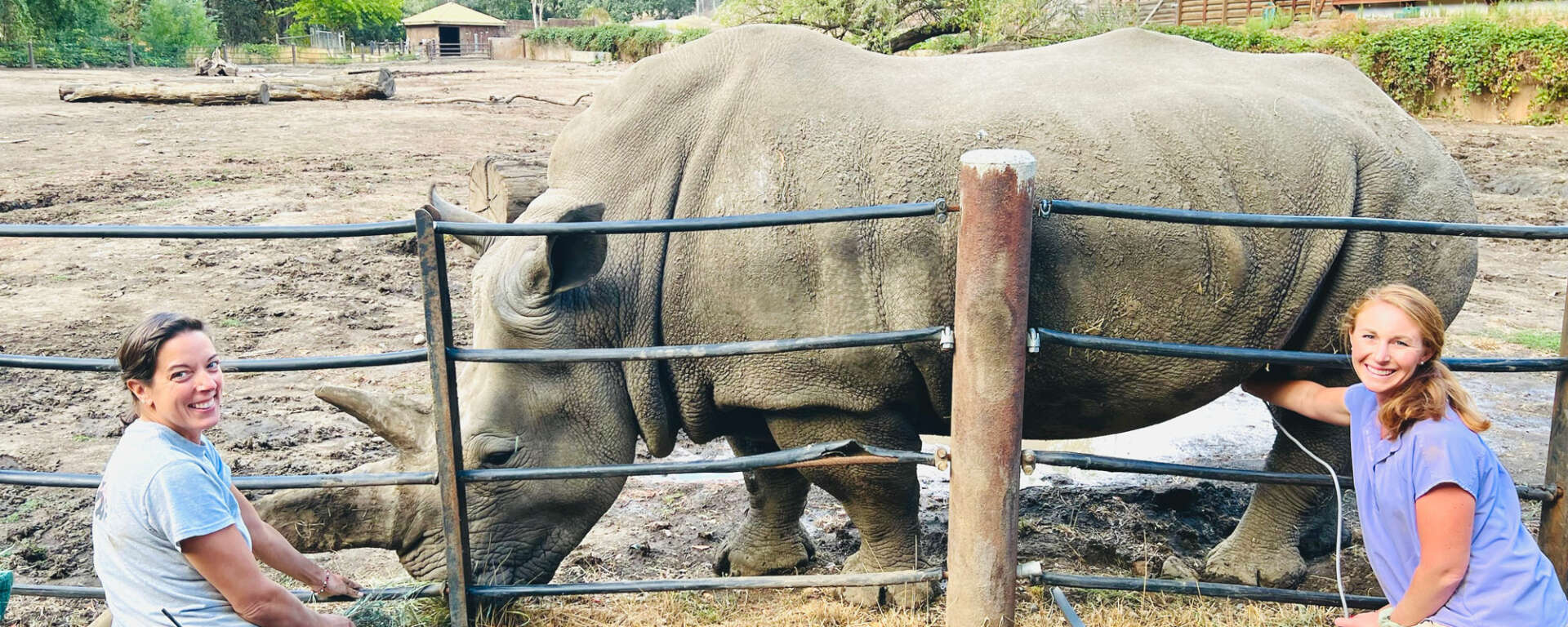Rhino Pregnancy Announcement
Posted in: Baby Animals, Goings on, News
Safari West is delighted to announce the pregnancy of our Southern white rhinoceros! This historic birth will be the first calf of Eesha, our female rhino, and the first rhinoceros ever born in Sonoma County. We are humbled by the opportunity to contribute to the growth of rhino populations and aid in the conservation of this protected species.
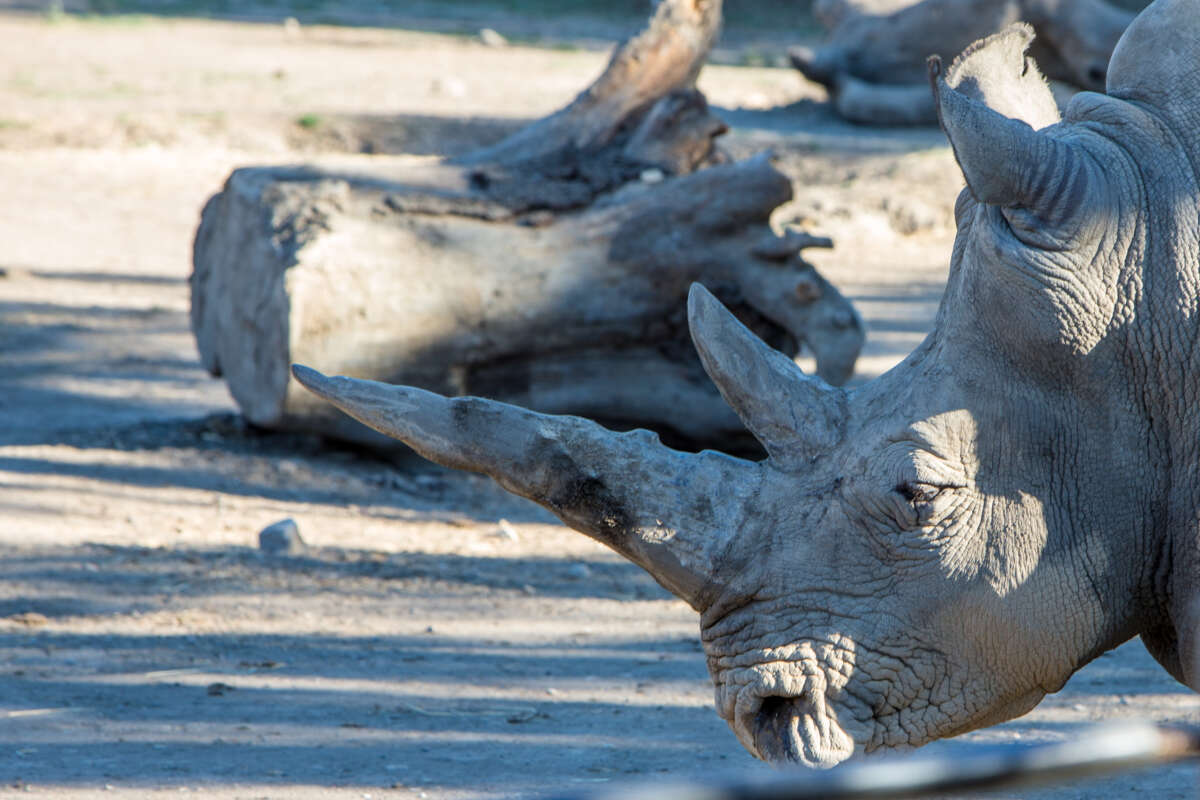
Eesha by Ray Mabry
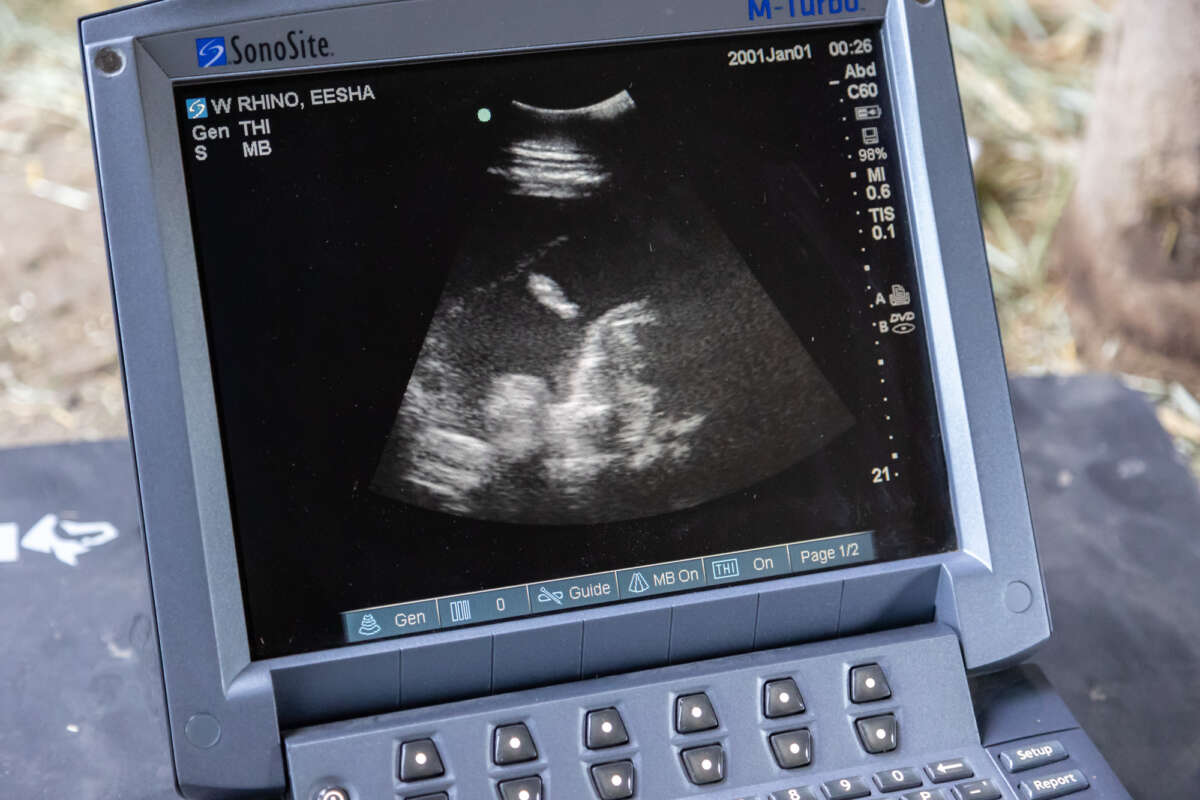
Ultrasound looking for baby rhino by Mark Pressler
White rhinos have a gestation of 16 – 18 months, so lots of patience is required when anticipating a new baby. Based on when we suspect breeding occurred, we expect the calf to arrive sometime in the next two months! Safari West staff have baby-proofed the rhino habitat in preparation for the new calf.
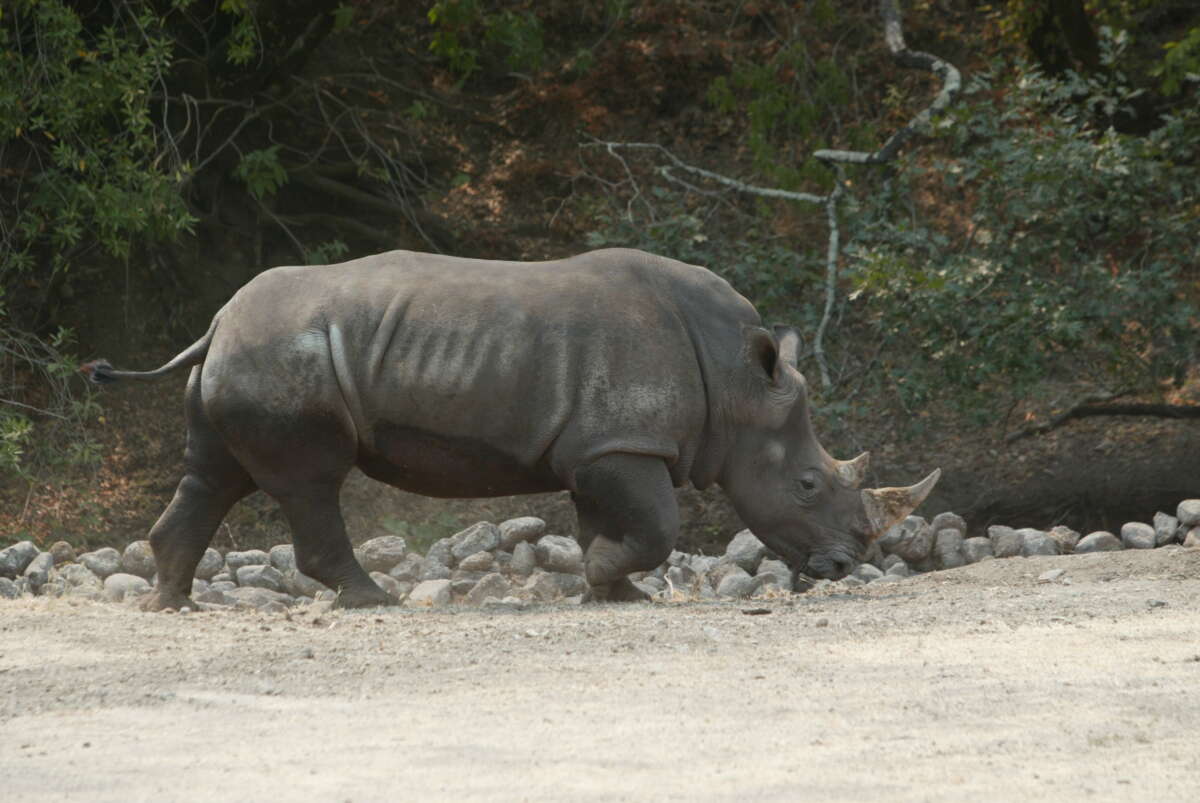
Eesha when she first came here by Adrian Boyer
The birthing process has a level of risk for every animal. We are especially cautious, because while it is very common for female white rhinos to have babies at Eesha’s age, it is uncommon for female white rhinos to have their first calf at Eesha’s age. She is 18 years old. Based on the veterinary examinations and ultrasounds we have conducted, we are optimistic and hopeful for the birth of a healthy calf. Given the challenges rhinos are currently facing in the wild, a pregnant rhino anywhere in the world is reason to celebrate.
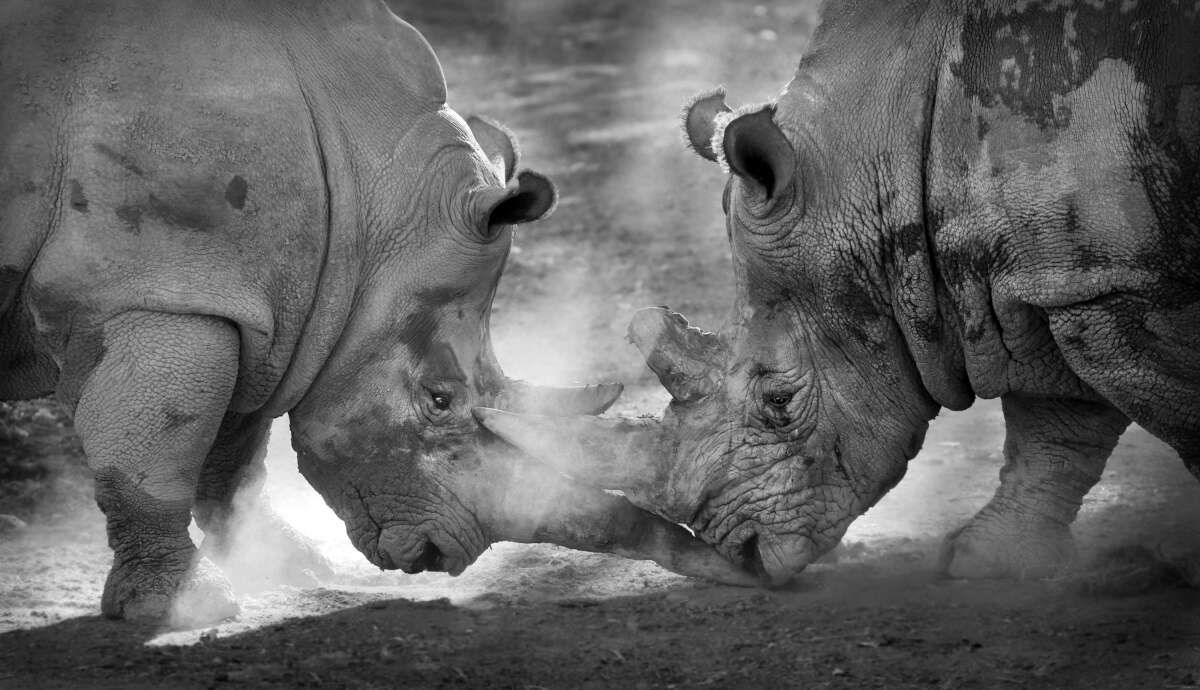
Rhinos by John Burgess
Mother Eesha arrived at Safari West in 2008, as a four year old rhino. Over the last 15 years, she has helped us teach tens of thousands of guests about the plight rhinos are facing in the wild and the amazing organizations that are working to sustain and grow rhino populations. While we always hoped Eesha might one day contribute to the growth of rhino populations, she never had more than a platonic relationship with her male rhino habitat mates. This changed in 2021 when Ongava arrived and was introduced to Eesha!
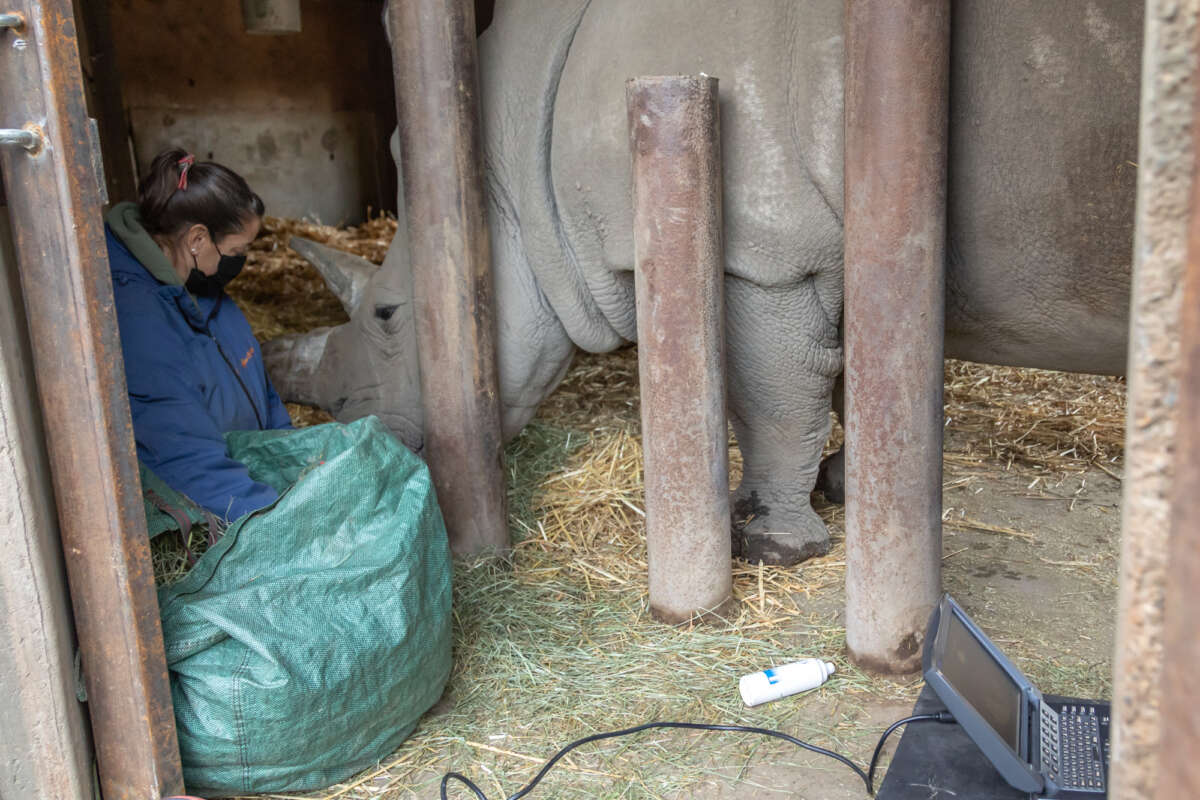
Lori feeding Eesha during ultrasound by Mark Pressler
Ongava came to Safari West as a recommended breeding match from the Association of Zoos and Aquariums’ White Rhino Species Survival Plan, or SSP, ensuring a healthy genetic pairing. When Eesha and Ongava were introduced, the pair exhibited the assertive behaviors normally seen in rhino courtship, as well as a few attempts at breeding. Throughout 2022 we saw positive signs of pregnancy. Blood draws revealed continuously elevated levels of the hormone progesterone, and regular transabdominal ultrasounds displayed calf movement! Safari West initiated a research project involving weekly thermal imaging of Eesha. Results are being compared to the established methods of determining and monitoring pregnancy, to see if thermography is a viable alternative way to monitor pregnancy in rhinos. Stay tuned for a more in-depth look at the research we are conducting to benefit rhinos in the wild and under human care!
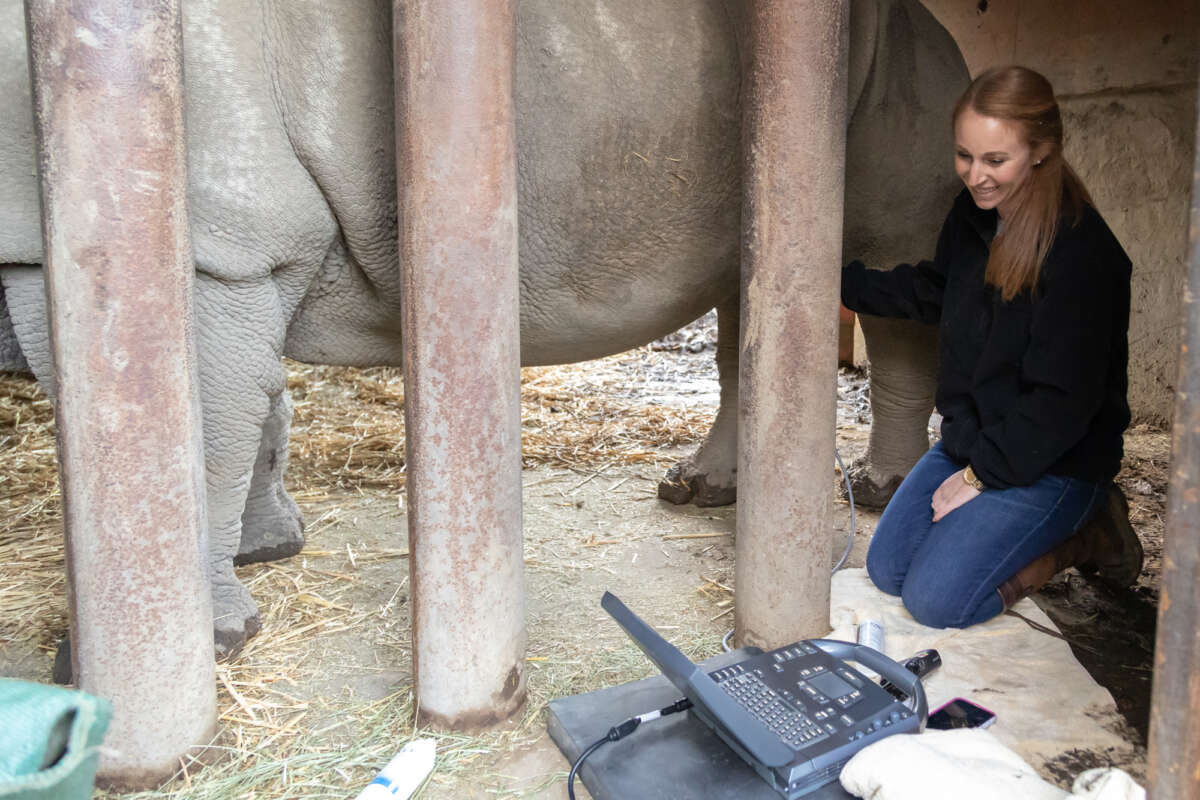
Dr. Cehrs doing ultrasound on Eesha by Mark Pressler
Rhinos have become an integral part of Safari West’s mission of conservation education, and we hope that the news of this pregnancy will help raise awareness of the fight to protect rhinos. Unfortunately, all five species of rhino are struggling in the wild—the International Rhino Foundation’s 2022 State of the Rhino Report reveals three species are critically endangered, with two of those species having populations of less than 100 individuals left in the world. The white rhino, the species at Safari West, is currently doing the best in the wild of all five rhino species with a declining population of approximately 16,000 individuals. The decline in rhino populations is largely due to poaching for their horns, which have perceived value as medicine and symbols of status and wealth.
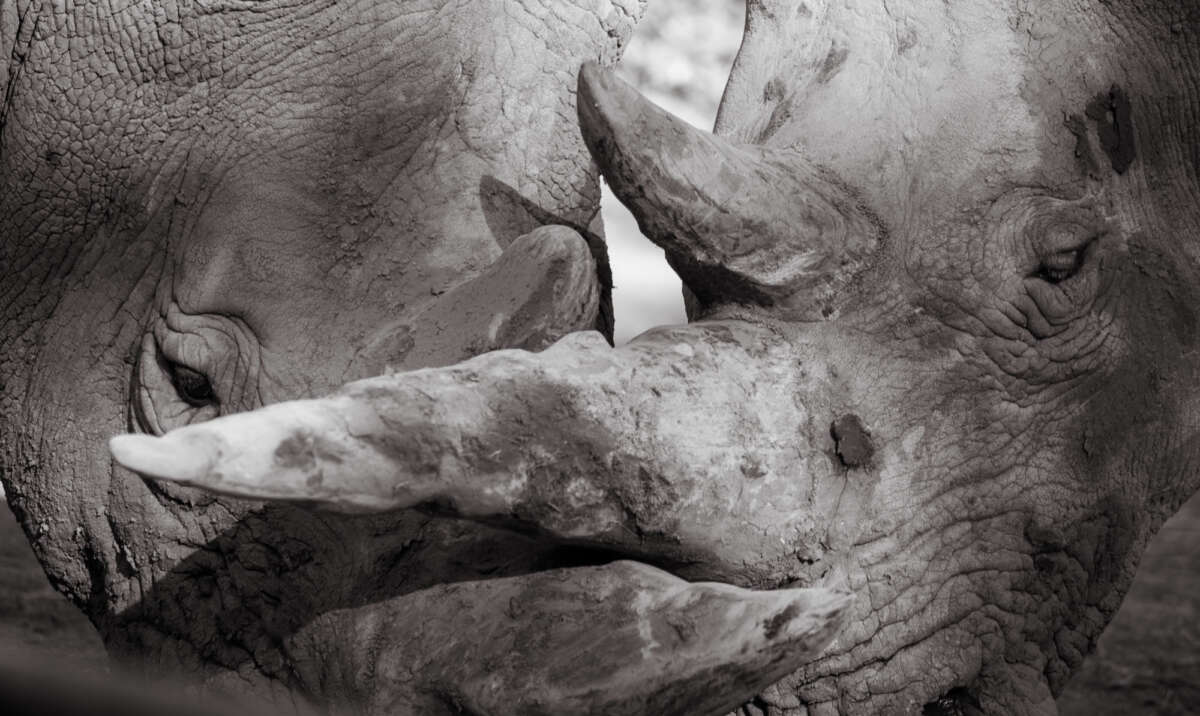
Photo by Nate Woodward
Safari West supports the International Rhino Foundation. The IRF works to save rhinos using a multitude of strategies, from anti-poaching efforts to community education and campaigns to reduce the demand for rhino horns. Learn about the IRF’s critically important efforts, and support them at rhinos.org.
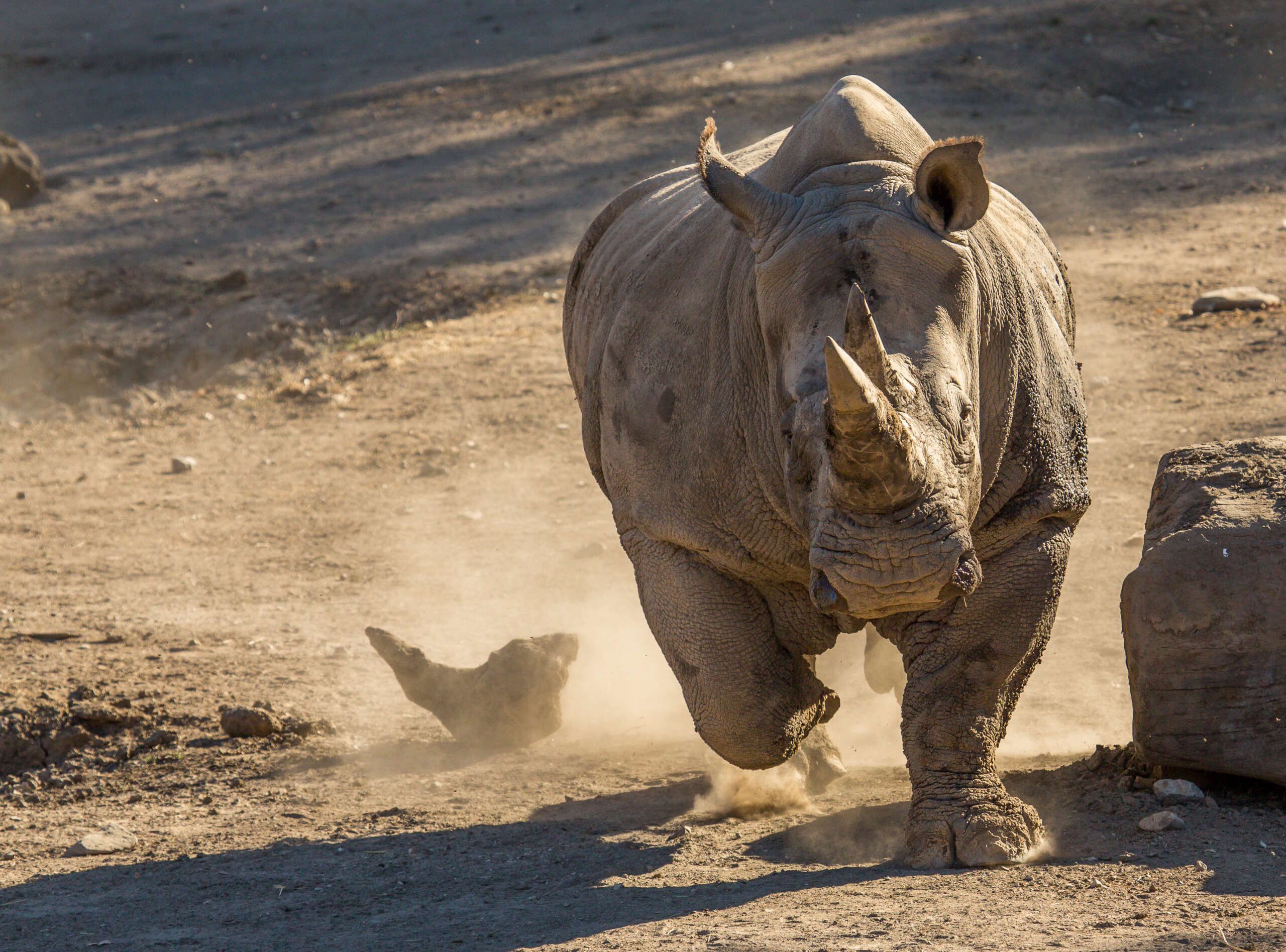
Eesha trotting by Amy Finch
